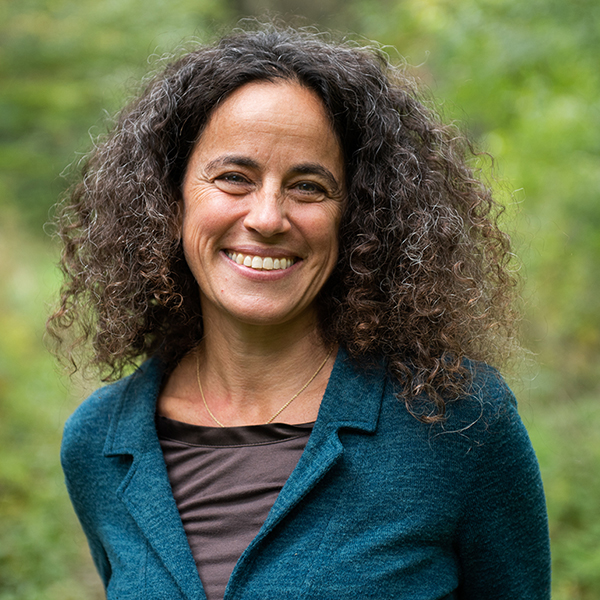While it may not dominate the headlines compared to other illnesses, tuberculosis (TB) remains the world’s most deadly infectious disease, despite the fact that effective, affordable treatments are generally available.
So why does TB still kill an estimated 1.6 million people a year? One big factor is that many patients, particularly in developing countries, don’t follow the treatment regimen properly. Keheala, a digital health platform founded by Jon Rathauser, BSc’13, was created to tackle the behavioural aspects that allow the disease to flourish.
According to a study that just appeared in one of the world’s most prestigious medical journals, Keheala’s methods seem to be working. Patients were successfully encouraged, motivated and reminded to take their medicine – receiving those messages through their phones.
The study, published in the New England Journal of Medicine this month, examined the results of a Keheala project involving TB patients in Kenya. Researchers and officials from the World Health Organization, Kenya’s Ministry of Health, MIT’s Sloan School of Management, Swarthmore College and the International Union Against Tuberculosis and Lung Disease partnered with Keheala for the study.
“TB patients in Kenya using our intervention had a 68 percent reduction in an unsuccessful health outcome compared to the standard to care in Kenya,” says Rathauser.
Keheala, a phone platform designed to work on 99 per cent of smartphones and basic feature cell phones, uses behavioural drivers to keep patients engaged and taking their medicine. There is high mobile phone penetration in Africa – eight out of 10 people have a phone – making it the ideal way to communicate directly with patients.
Keheala collaborated with 17 health care clinics in Nairobi for the project. 569 patients took part in Keheala’s intervention program. Another 535 patients were in a control group that did not use the mobile digital program. Only four per cent of the TB patients using the Keheala platform had unsuccessful treatment outcomes. Thirteen per cent of the patients in the control group, who weren’t using the platform, didn’t complete their treatments.
Rathauser says the reason why Keheala is working so far is that tuberculosis isn’t just a medical problem, it’s also a social one.
“There are powerful community stigmas [around TB], so patients are treated like outcasts by family and friends,” he says. “There are also access to care challenges, and then a general lack of information, motivation and support.”
The treatment for tuberculosis is long and time-consuming: medication every day often for six months. Patients don’t always have easy access to information about the disease. Sometimes patients stop treatment because they start to feel better, or because they start to feel worse.
“We deliver disease management tools that make it easier to be a sick patient, so daily reminders to take your meds, access to information, and the ability to self-verify your adherence so you don’t have to go to the clinic each day, all while the health care system can still follow along,” says Rathauser.
If patients didn’t respond to the initial messages they received about taking their medication, the Keheala team and the medical clinics were notified. Follow-up messages — and in some cases, a phone call — would urge those patients to stick to their treatment regimes.
“We reframe adherence to be a public good,” says Rathauser. “Take your medication, not [just] so you can get better, but so you can protect your family and friends from getting sick.”
Keheala offers access to former patients who understand the challenges of the disease, making them available to field questions by phone call or text. Users can also track who’s been complying with treatment anonymously, and will receive encouraging messages such as “80 percent of patients already took their medicine today, join them.”
“Keheala takes principles from behavioural economics and psychology and designed every interaction in a way that motivates the patient to adhere to treatment,” says Rathauser.
Despite being in the global public health field for only a few years, the digital health startup has already had a noticeable impact. It has raised a million dollars from public and private sources and is treating almost 20,000 patients today.
Keheala is also looking to expand into HIV treatment (30 percent of their TB patients have both) and a new tool called differentiated care, which Rathauser says will allow them to target patients who might need a little more or less support.
Saving lives remains the ultimate goal of Keheala, and while encouraging treatment can help stop the spread of TB, Rathauser remains concerned by the number of people who simply go undiagnosed.
“Forty per cent of all tuberculosis patients are not on treatment – they’re undiagnosed and getting other people sick and remaining sick,” he says. “We have a concept we’re working on now to identify high-risk individuals and to nudge them to a screening.”
He says that Keheala’s tools could have other applications as well.
“What we’ve developed is a behavioural adherence methodology. It’s not specific to TB, it’s not even specific to disease. What we do could be applied to education [and] lifestyle changes like nutrition and exercise. Potentially those are behaviours we can intervene with using our methodology.”


